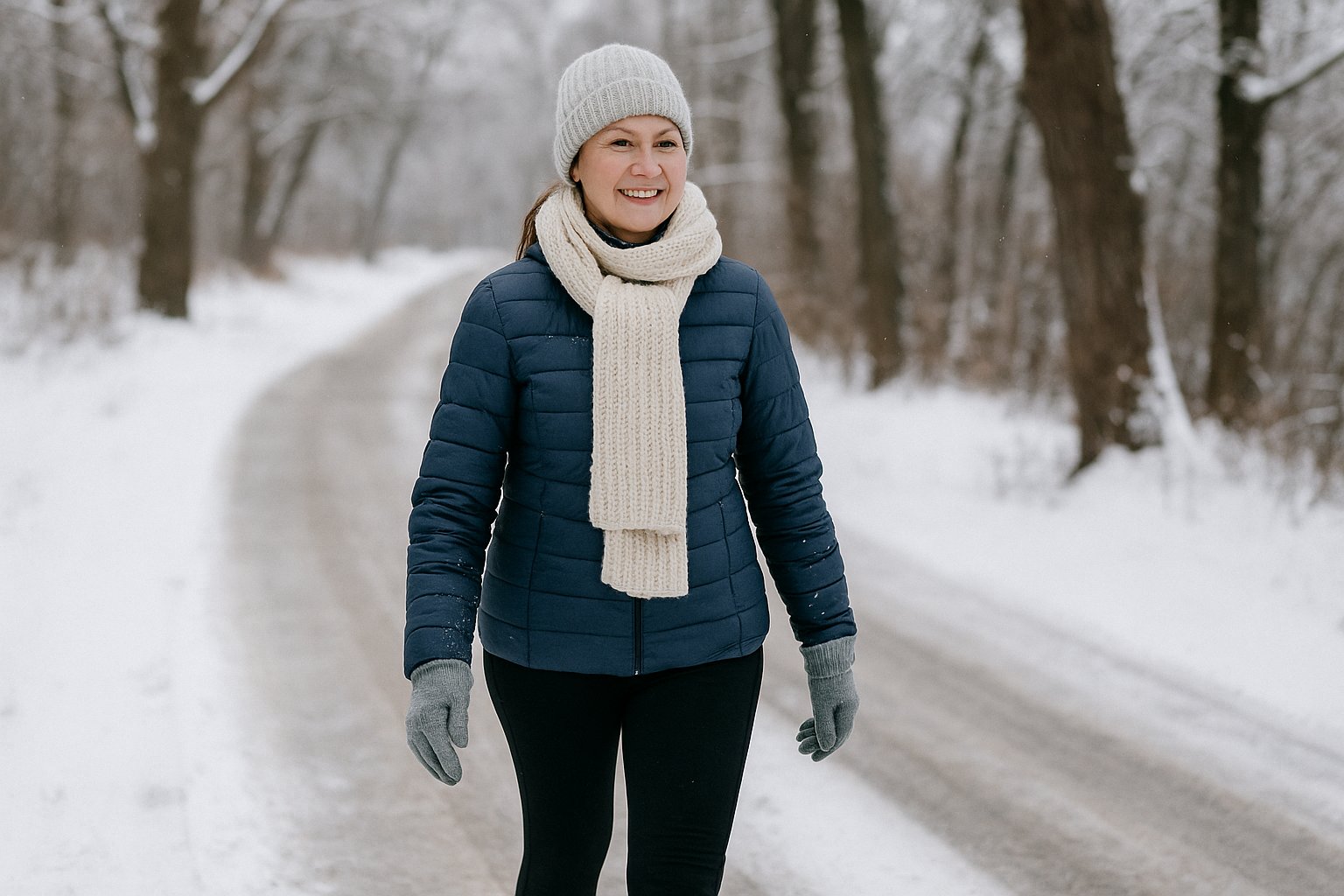Stay Healthy and Energized Through the Cold Months
Cold weather brings cozy meals and quiet nights, but it also challenges your body in ways you might not notice. Dry air, less sunlight, and time indoors can drain energy and immunity. Staying healthy in winter comes down to simple routines that support warmth, rest, and resilience.

Keep Your Body Fueled and Moving
You do not need a gym membership to stay active through cold months. A short daily walk, some stretches, or a light workout video at home can keep circulation strong and boost your mood. A yoga mat and resistance bands from Target or Amazon Basics take up little space but make consistency easier. If you prefer staying outdoors, layer a moisture-wicking base shirt with a thermal jacket to trap warmth without overheating.
Food matters just as much. Focus on colorful produce, lean proteins, and hearty grains that keep you full longer. Soups, roasted vegetables, and whole oats offer warmth while helping balance energy through the day. Harvard Health notes that foods rich in vitamin C and zinc, such as citrus, peppers, and nuts, naturally support immune function without needing extra supplements.
Stay Ahead of Seasonal Illness
Winter brings more time indoors and more shared air. Simple habits protect you better than overcomplicated remedies. Centers for Disease Control and Prevention recommends washing hands often and keeping high-touch surfaces like phones and door handles clean. A quick daily wipe-down with disinfecting cloths helps prevent viruses from spreading at home.
Flu shots remain one of the easiest forms of protection. Pharmacies at CVS and Walgreens usually offer free or low-cost vaccines, and many insurance plans cover them fully. If someone in your household gets sick, opening a window for ten minutes a few times a day helps refresh indoor air and reduce germs.
Hydrate and Protect Your Skin
Even when it is cold, dehydration sneaks up fast. Heated indoor air pulls moisture from your skin and sinuses. Keep a glass of water nearby throughout the day and use a humidifier in bedrooms or offices. The Levoit LV600S is a quiet option that keeps air comfortable for hours.
Moisturizing right after bathing seals in hydration. Look for creams with ceramides or hyaluronic acid, such as CeraVe Moisturizing Cream or Neutrogena Hydro Boost, both dermatologist-approved and widely available. Applying them within a minute of showering can make a noticeable difference.
Support Your Mood and Sleep
Shorter days can throw off energy and mood. Getting outside for just fifteen minutes of daylight, even on cloudy mornings, helps your body maintain healthy sleep cycles. If natural light is limited, a light therapy lamp like Verilux HappyLight can mimic daylight and ease afternoon fatigue.
Good sleep also strengthens immunity. Keeping a steady bedtime, using dim lights before bed, and setting your thermostat around 68 degrees creates a restful environment. Soft blankets, weighted throws, or flannel sheets add warmth that helps you fall asleep faster and stay asleep longer.
Make Your Home Winter-Ready
Safety and comfort go hand in hand. Before the deep freeze hits, test smoke and carbon monoxide detectors and replace old batteries. Keep a flashlight and backup batteries in one spot in case of power loss. EnergyStar.gov recommends sealing window gaps with weather stripping to reduce heat loss and lower energy bills. Small moves like these keep your home warmer and more efficient.
A Season for Steady Care
Winter wellness is less about big goals and more about quiet consistency. Move a little, rest a little, and give your body what it needs - hydration, nutrients, warmth, and light. Those simple habits protect more than just your health; they protect your peace of mind until spring returns.
Sources
Harvard Health
Centers for Disease Control and Prevention
EnergyStar.gov
